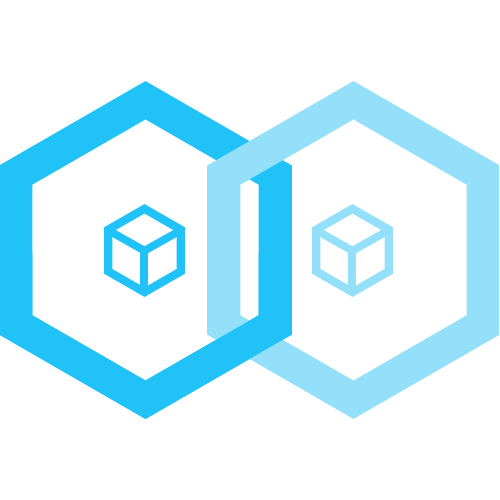Blockchain
Blockchain
"The blockchain symbolizes a shift in power from the centers to the edges of the networks." - William Mougayar

Blockchain technology was originally invented in 2008 by a person using the pseudonym Satoshi Nakamoto for use as the digital ledger to securely transfer the cryptocurrency Bitcoin. Blockchain also solved the problem of double-spending without having to use a central server where all transactions are maintained and managed.
The term blockchain is a chain of secure blocks that contain a constantly growing list of records that are secured using cryptography. Each block contains a secure hash of the previous block, timestamp and new transaction data.
By design, a blockchain is resistant to modification of the data. It is designed as an open, distributed ledger that can be used to record transactions using a permanent and verifiable method. Once recorded the data in a block cannot be changed without altering all the subsequent blocks.
Because the blocks are distributed in a peer-to-peer network and has no central authority or singe server managing the transactions, it is a highly secure and fault tolerant solution.
Because of these design methods, blockchain technology can be applied to myriad applications. Solutions using Blockchain can be implemented for tracking ownership, events, medical records, and other records management processes such as identity management, transaction processing, food traceability, government and voting.
Blockchain Applications
Blockchain has the potential to help us implement new solutions that will overcome difficult business processes.
- Financial Services Industry – Improve execution and settlement times, improve security, redesign inefficient workflows
- Healthcare – Fast, secure, verifiable access to personal medical records
- Government – improve transparency and traceability. Reduce Fraud and operational costs
- Retail – implement smart contracts, accept digital currencies as payment
- Supply Chain Management – asset tracking, improved logistics
Blockchain Platforms
The top 5 Blockchain platforms today are Ethereum, Hyperledger Fabric, R3 Corda, Ripple, and Quorum.
- Ethereum – Ethereum is an open source blockchain platform to allow you to deploy a variety of network topologies
- Hyperledger Fabric – The Hyperledger Fabric will allow you to deploy services for membership, ordering and validating peers
- R3 Corda – The Corda distributed Ledger platform will allow you to deploy a multi-participant, multi-node network
- Ripple – Ripple is an Enterprise blockchain solution for global payments
- Quorum – An enterprise focused version of Ethereum
| Platform | Industry | Governance | Ledger Type | Cryptocurrency | Consensus Algorithm | Smart Contract |
|---|---|---|---|---|---|---|
| Ethereum | Cross-Industry | Ethereum Developers | Permisionless | Ether (ETH) | Proof of Work (PoW) | Yes |
| Hyperledger Fabric | Cross-Industry | Linux Foundation | Permissioned | None | Pluggable Framework | Yes |
| Corda | Financial Services | R3 Consortium | Permissioned | None | Pluggable Framework | Yes |
| Ripple | Financial Services | Ripple Labs | Permissioned | Ripple (XRP) | Probabilistic Voting | No |
| Quorum | Cross-Industry | Ethereum Developers & JP Morgan Chase | Permissioned | None | Majority Voting | Yes |
Built to Suit your Business
Custom Software Solutions can help architect a blockchain solution that meets the requirements of your business. Our developers can leverage the unique features and functionality of blockchain to create a solution for your business.
Blockchain Architecture
Blockchain is a new technology that can be used as a platform to create new solutions for business processes. Our experts can help you choose the right platform and create a blockchain architecture that best suits your application.
Blockchain Installation and Hosting
CSS partners with Microsoft Azure and IBM Cloud Hosting to offer a Blockchain-As-A-Service (BaaS) model of hosting. The BaaS model allows an organization to “rent” a blockchain service from a blockchain hosting provider, similar to the Software As A Service (SaaS) model commonly used in software development.
Copyright © 2026 - Custom Software Solutions, Inc.







